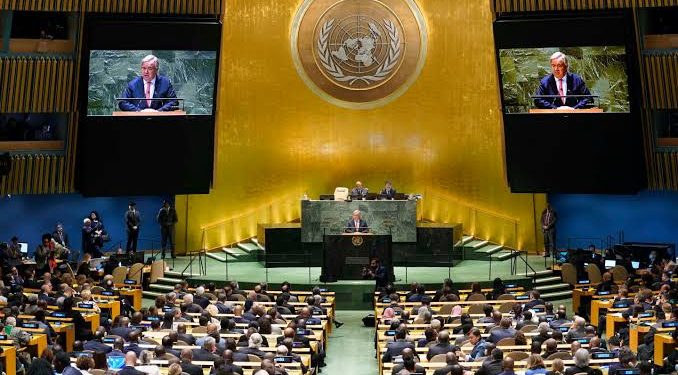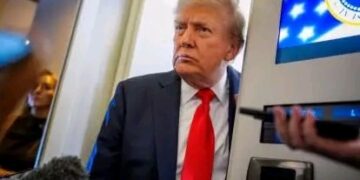Call it Borrell’s theorem or Borrell’s paradox. The more powerful countries in the heavyweight and middleweight categories there are in the world, the less it is governed by the rule of law, according to Josep Borrell, the foreign policy chief of the European Union (EU). To translate that into non-diplomatic terms: The law of the jungle is taking hold, if it ever ceased to exist.
On the sidelines of the United Nations (UN) General Assembly meeting in New York at the end of September, the vice president of the European Commission spoke to law students at New York University. Borrell pointed to this “paradox” of a world that is multipolar but has less “multilateralism.” A world with a greater number of powers, but which is freeing itself from existing norms. More wild animals, fewer bars. It’s a good description of today’s international scene – from the atrocities perpetrated against the Armenian population of Nagorno-Karabakh to Russian aggression against Ukraine.
The Western world is no longer hegemonic. Demographics, economics, technology, nuclear arsenals here and there: All the criteria are in place to establish an increasingly fragmented map of power. From China to Brazil, from India to the Persian Gulf, the spread of the instruments of power is gradually neutralizing Western supremacy.
Breaking news/Trending/Feature
-
Nigerian man that was beaten to death on the street in Italy
-
Breaking News : STEWART EFE’S well deserved appointment as Edo State image Maker
-
Biography of Edo Funk Super star- Esther .O. Edokpayi
-
Stephanie O. Linus appointed as National OPS-WASH Ambassador by the Honourable Minister of Water Resources
-
NAOMI GOLD- ON A RED LIGHT TALK SHOW FINGERED BY COUNSELOR
-
BENIN KINGDOM STANDS FIRM: “NO LAND TO SPARE” FOR PROPOSED ANIOMA/TORU-EBE STATE
-
INTERNAL SECURITY: EDO POLICE LAUNCH HOUSE-TO-HOUSE ARREST OF CULTISTS, RAID BLACKSPOTS
-
woman who was wearing a nightie with no underwear, flashed her private part while dancing
Breaking news News
Popular News
-
Nigerian man that was beaten to death on the street in Italy
-
Breaking News : STEWART EFE’S well deserved appointment as Edo State image Maker
-
Biography of Edo Funk Super star- Esther .O. Edokpayi
-
Stephanie O. Linus appointed as National OPS-WASH Ambassador by the Honourable Minister of Water Resources
-
NAOMI GOLD- ON A RED LIGHT TALK SHOW FINGERED BY COUNSELOR









